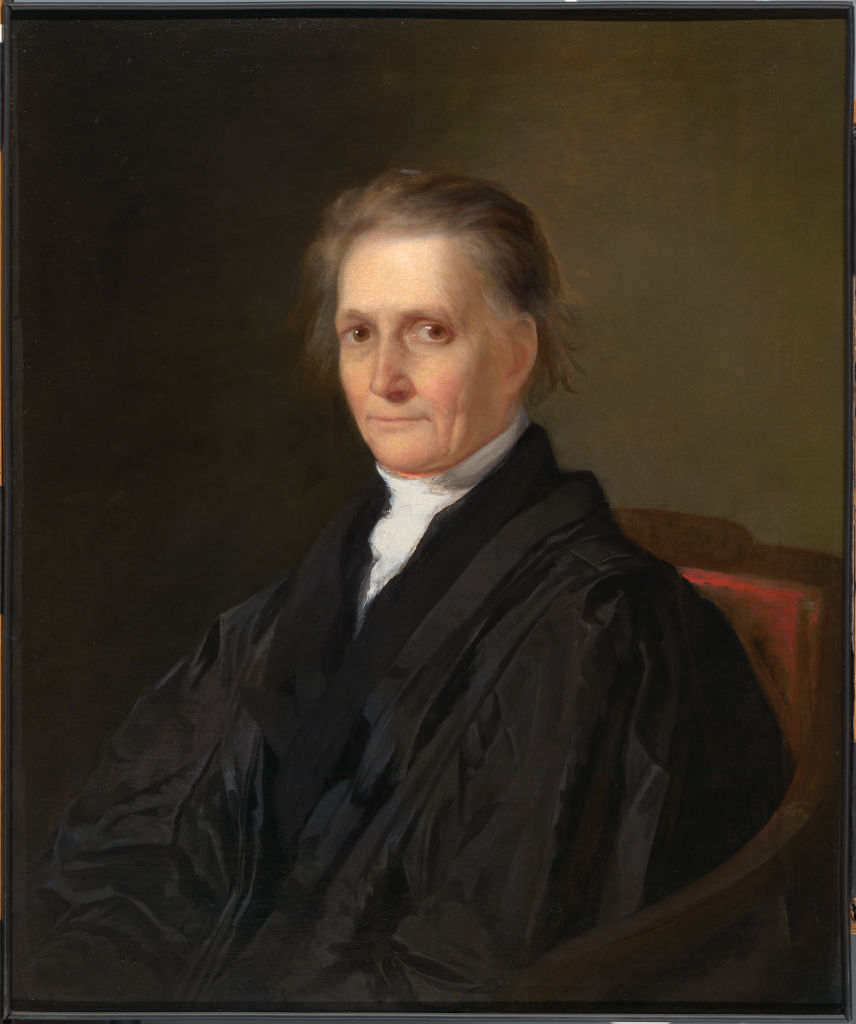Ted Cruz's example of a non-'controversial' Supreme Court nominee was a controversial slaveholder

A free daily email with the biggest news stories of the day – and the best features from TheWeek.com
You are now subscribed
Your newsletter sign-up was successful
Sen. Ted Cruz (R-Texas) began his opening statement at Monday's Supreme Court confirmation hearing for Judge Ketanji Brown Jackson by telling Jackson and the cameras that "Supreme Court confirmations weren't always controversial." In fact, he said, "Bushrod Washington, when nominated to the Supreme Court in 1798, was confirmed the very next day."
It is true that Washington, a favorite nephew of George Washington, was confirmed by voice vote one day after his nomination by President John Adams, The Washington Post reports. But "Washington was neither the first nor the last to be confirmed that quickly" — about 10 Supreme Court justices were confirmed the same day they were nominated — and "he was definitely controversial, largely because of his actions as an enslaver."

For one thing, Washington brought enslaved African Americans back to Mt. Vernon after he inherited the Washington estate in 1802, upon the death of Martha Washington, who had freed the remaining slaves. That wasn't overly controversial in the Senate itself, where more than half the 31 senators at the time were also slaveholders, the Post reports. But when he sold 54 of those enslaved people for $10,000 to pay off his debts, and they were marched in chains to Louisiana, newspapers called his actions "excessively revolting."
The Week
Escape your echo chamber. Get the facts behind the news, plus analysis from multiple perspectives.

Sign up for The Week's Free Newsletters
From our morning news briefing to a weekly Good News Newsletter, get the best of The Week delivered directly to your inbox.
From our morning news briefing to a weekly Good News Newsletter, get the best of The Week delivered directly to your inbox.
Washington also co-founded the American Colonization Society in 1812, working to send the growing ranks of free Black Americans to Africa, a place almost none of them had ever been. When abolitionists and Black people fought against this movement, Washington complained about "unworthy persons" speaking "with my negroes, and to impress upon their minds the belief that as the nephew of General Washington, or as president of the Colonization Society, or for other reasons, I could not hold them in bondage," the Post reports, citing a 1980 paper in the Supreme Court Historical Society.
"So that is who Cruz mentioned in his speech Monday," Gillian Brockell writes at the Post. "For all intents and purposes, it was a throwaway line meant only to introduce Cruz's real historical point: what had changed from those halcyon, uncontroversial days." But his explanation of what changed raised its own set of questions. Read more at The Washington Post.
A free daily email with the biggest news stories of the day – and the best features from TheWeek.com
Peter has worked as a news and culture writer and editor at The Week since the site's launch in 2008. He covers politics, world affairs, religion and cultural currents. His journalism career began as a copy editor at a financial newswire and has included editorial positions at The New York Times Magazine, Facts on File, and Oregon State University.
-
 ‘Restaurateurs have become millionaires’
‘Restaurateurs have become millionaires’Instant Opinion Opinion, comment and editorials of the day
-
 Earth is rapidly approaching a ‘hothouse’ trajectory of warming
Earth is rapidly approaching a ‘hothouse’ trajectory of warmingThe explainer It may become impossible to fix
-
 Health insurance: Premiums soar as ACA subsidies end
Health insurance: Premiums soar as ACA subsidies endFeature 1.4 million people have dropped coverage
-
 Ex-South Korean leader gets life sentence for insurrection
Ex-South Korean leader gets life sentence for insurrectionSpeed Read South Korean President Yoon Suk Yeol was sentenced to life in prison over his declaration of martial law in 2024
-
 Rubio boosts Orbán ahead of Hungary election
Rubio boosts Orbán ahead of Hungary electionSpeed Read Far-right nationalist Prime Minister Viktor Orbán is facing a tough re-election fight after many years in power
-
 Key Bangladesh election returns old guard to power
Key Bangladesh election returns old guard to powerSpeed Read The Bangladesh Nationalist Party claimed a decisive victory
-
 Epstein files topple law CEO, roil UK government
Epstein files topple law CEO, roil UK governmentSpeed Read Peter Mandelson, Britain’s former ambassador to the US, is caught up in the scandal
-
 Iran and US prepare to meet after skirmishes
Iran and US prepare to meet after skirmishesSpeed Read The incident comes amid heightened tensions in the Middle East
-
 EU and India clinch trade pact amid US tariff war
EU and India clinch trade pact amid US tariff warSpeed Read The agreement will slash tariffs on most goods over the next decade
-
 Israel retrieves final hostage’s body from Gaza
Israel retrieves final hostage’s body from GazaSpeed Read The 24-year-old police officer was killed during the initial Hamas attack
-
 China’s Xi targets top general in growing purge
China’s Xi targets top general in growing purgeSpeed Read Zhang Youxia is being investigated over ‘grave violations’ of the law
